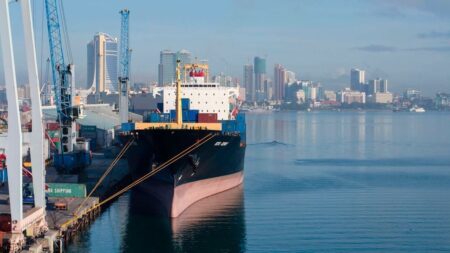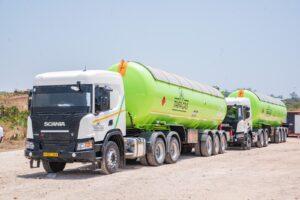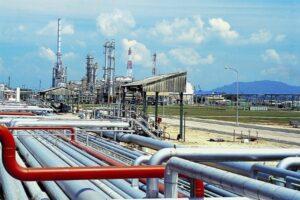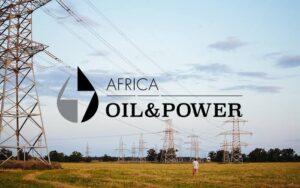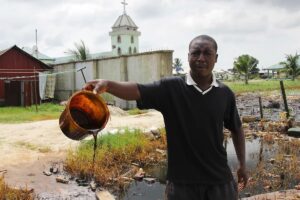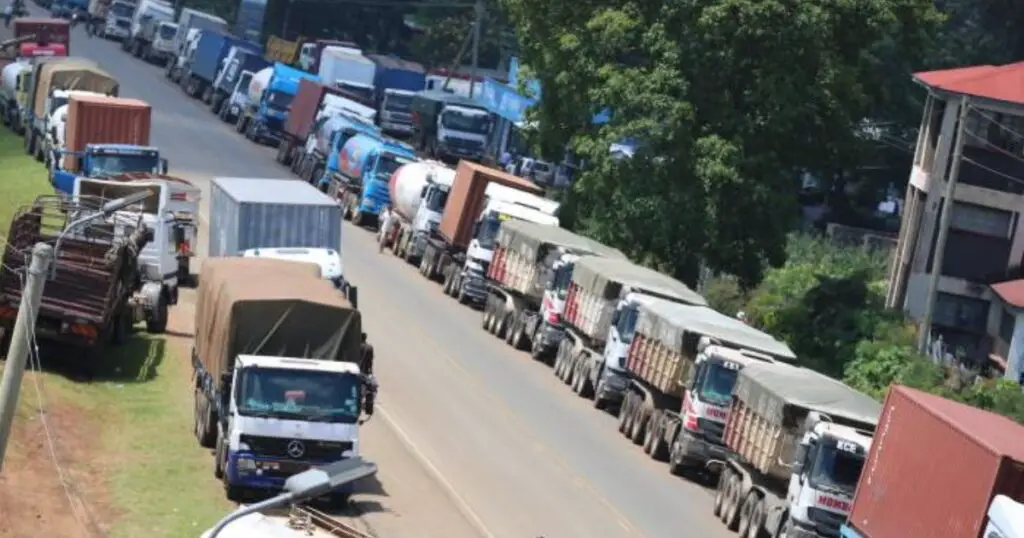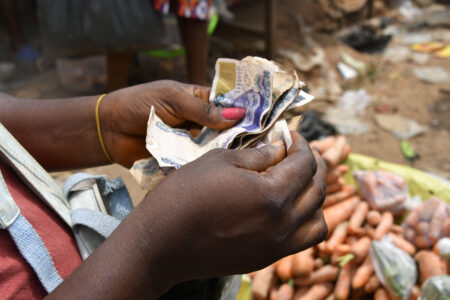- Kenya-Ethiopia Trade Relations: Legislators Advocate for Policy Alignment to Boost Ties
- Visualising the state of debt in Africa 2024
- Abu Dhabi radiates optimism as over 300 startups join AIM Congress 2024
- TLcom Capital Raises $154 million in Funding to Boost Its African Growth
- Africa’s $824Bn debt, resource-backed opaque loans slowing growth — AfDB
- LB Investment brings $1.2 trillion portfolio display to AIM Congress spotlight
- AmCham Summit kicks off, setting course for robust future of US-East Africa trade ties
- Why the UN is raising the red flag on the UK-Rwanda asylum treaty
Oil&Gas
- Tanzania has offered the Uganda National Oil Company (Unoc) to use the Dar es Salaam port for oil importation.
- This presents a strategic alternative amid the ongoing importation stalemate between Uganda and Kenya.
- The legal dispute between Uganda and Kenya over oil importation policies is pending before the East African Court of Justice (EACJ), with indications that Uganda may withdraw the case.
Tanzania has stepped forward with an enticing proposition that Kampala finds hard to ignore, especially regarding the ongoing deadlock in Nairobi-Kampala oil imports.
Tanzania has extended an offer to the Uganda National Oil Company (Unoc) to utilise the Dar es Salaam port for its fuel importation needs. This development comes as Uganda explores alternatives in response to Kenya’s steadfast position on Kampala’s oil importation demands.
Uganda’s grievance at the East African Court of Justice (EACJ) remains pending amid these unfolding events, casting a shadow of uncertainty over …
- The Uganda National Oil Company (UNOC) is directly importing petroleum products from Vitol Bahrain, aiming to reduce reliance on Kenyan firms and mitigate high fuel prices.
- UNOC’s direct importation and sale of fuel to OMCs in Tanzania and Uganda is a significant step towards fostering stronger regional ties, promoting economic growth, and ensuring energy security.
Uganda National Oil Company (UNOC) has started the sale of petroleum products to oil marketing companies in both Uganda and Tanzania.
This is part of a broader strategy to test the waters before UNOC embarks on a direct importation agreement with the global oil titan, Vitol Bahrain. This maneuver signals a new era in East Africa’s energy dynamics, especially following a cooling of relations between Uganda and Kenya over fuel supply mechanisms.
Breaking New Ground: Uganda National Oil Company Direct Importation Deal
For years, Uganda’s fuel supply chain was heavily dependent on Kenyan OMCs. However, …
- Taifa Gas broke ground at the Dondo Kundu Special Economic Zone next to the Port of Mombasa last Friday
- The firm supplies LPG for domestic, commercial and industrial use and has been feeding the Kenyan market by road.
- The company has been given 30 acres in Dongo Kundu to set up a 30,000 metric tonnes gas handling facility.
The entry of Taifa Gas into Kenya is expected to shake up the cooking gas retail market in East Africa’s economic power house, which has witnessed rising prices in recent years.
Taifa Gas broke ground at the Dongo Kundu Special Economic Zone next to the Port of Mombasa last Friday, at an event presided over by Kenya’s President William Ruto.
The company is investing about USD130 million (Ksh16.4 billion) in a Liquefied Petroleum Gas (LPG) import, storage and distribution plant, at the 3,000-acre Special Economic Zone. Taifa has been supplying LPG for …
Total Uganda has bought out the financial struggling Tullow Oil for a whopping USD575 million as the latter gears up to leave the East African market.
The buyout will be paid in part by a USD 500 million initial payment payable upon completion and another USD75 million payable when the project pact is finalized.
With completion of the sell, Total Uganda will now own Tullow’s assets on the humongous Lake Albert Development project and the even larger East African Crude Oil Pipeline project. Tullow, a British owned conglomerate has been struggling and the just inked Uganda buy out will help improve its liquidity.
The move is not due to the ongoing global coronivrus pandemic, it is rather a strategic plan that was on the table long before the pandemic begun. At the start of the year, the sale and purchase agreement had already been signed, well before the Covi-19 virus …
The price for crude oil is down 60 percent since the year started and it is only tumbling further, global oil news reports.
On the one hand, analysts blame the ongoing coronavirus pandemic and on the other the price war between Saudi Arabia and Russia is said to have contributed to the sharp drop.
Even the movers and shakers are feeling the pinch, oil in the US plummeted 34%, crude oil falling by 26%, and brent oil falling 24%. Associated Press reports that prices this week dropped to an 18 year all time low of under USD20 a barrel for the US.
Speculators say it is the best time to invest, pessimists would have you shy away from taking the risk.
The idea is a simple business law, buy when prices are low and sell when prices peak, so technically, the advice to buy into the oil business now is …
Africa Oil & Power (AOP) launches Renewables, African LNG and Energy Finance Event at Africa Oil & Power 2020 in Cape Town, South Africa.
It is the first time AOP is hosting the forum which is in line with the vision of South Africa’s Department of Mineral Resources and Energy, the government and private sector partners from all four corners of Africa.
The Africa Oil & Power forum 2020 will host presidents, ministers, utility and national oil company heads and renewables executives. The event will majorly focus on the driving factors behind energy transition.
The theme of the conference which marks the entrance of the African Continental Free Trade Area is ‘Invest Without Boundaries’. The Africa Oil & Power is the only conference on the continent that fully unites power and petroleum
Also Read: Uganda oil refinery gets funding from Africa Finance Corporation
“AOP 2020 is the meeting place for …
Equatorial Guinea capital-intensive projects open for investment in 2020 said Gabriel Obiang, minister for mines and hydrocarbons.
The capital- intensive projects include the construction of three oil refineries, liquefied petroleum gas strategic tanks, a Urea plant and the expansion of a compressed natural gas project.
Obiang said the 10 public-private, partnership-led projects will focus on downstream diversification and adding value to domestic crude production.
“2019 was a year in which we showed the world the potential of Equatorial Guinea. That was phase one. Phase two is the investment year. For many years, we have been exploiting our resources and exporting them, but now is the time that we get to the stage of processing,” he said during the sidelines of an international forum for gas exporting countries in the capital Malabo.
Also Read: Tanzania 3rd Oil and Gas Congress: How Magufuli is opening up Energy Investment
He added that midstream …
The Africa Finance Corporation(AFC) has advanced $20 million funding for the construction of Uganda’s crude oil refinery, paving the way for the start of the $4.27 billion projects.
Africa Finance Corporation signed the financing deal on the sidelines of the Africa Oil Week in South Africa mid this month.
Other financiers expected to put money into the multi-billion-dollar project include the African Development Bank, Prosper Africa, a US government Initiative that unlocks opportunities to do business in Africa and Trace and Development Agency another US-based firm.
AFC managing director Ammadou Wadda, representatives from US-based Prosper Africa Initiative, Trace Development Agency and African Development Bank president Akiwumi Adesinia attended the side event.
The investors also agreed to hold a meeting next year to discuss how to raise funds for the refinery. The refinery’s management is also expected to give details about the project and existing investment opportunities to potential investors.…
Egypt and South Sudan signed a Memorandum of Understanding in regard to cooperation in the field of downstream oil and gas, during the South Sudan Oil & Power (SSOP) 2019 Conference.
South Sudan will launch its first-ever licensing agreement in the first quarter of 2020 in regard to the 13 blocks onshore which will be open for tender.
As a testimony to the country’s growing attractiveness as an investment destination, the country hosted delegations and officials from Kenya, Ethiopia, Egypt, Somalia, Norway, United States and South Africa to discuss oil and future oil investments.
The Minister of Petroleum of South Sudan, Daniel Awow Chuang, expressed the country’s vision in the oil and gas sector which is experiencing increased production numbers.
“The oil production in South Sudan has reached 178 000 barrels per day. We hope to reach 250 000 barrels per day in the near future. …





